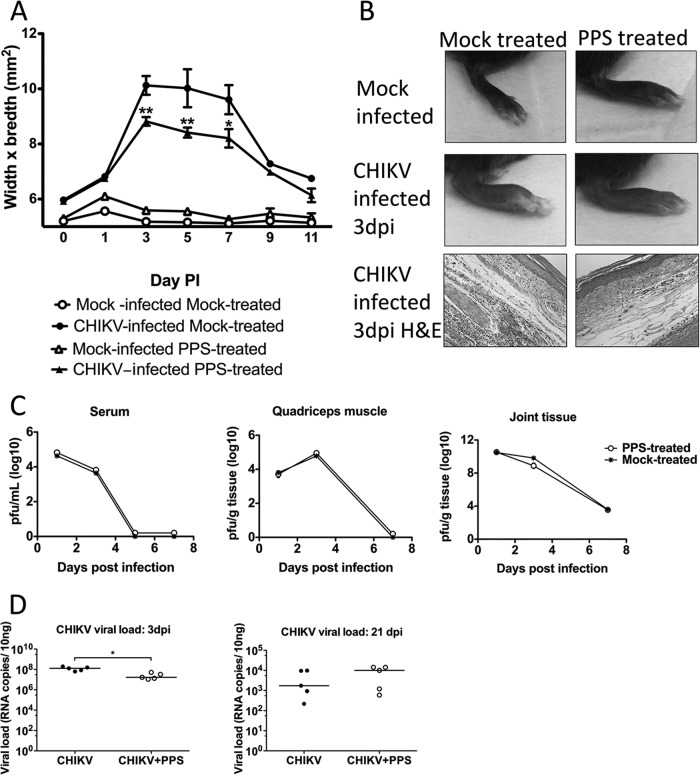FIG 7.
Pentosan polysulfate reduces the severity of acute CHIKV inflammation without affecting the kinetics of viral infection. Twenty-five-day-old C57BL/6 mice were infected s.c. with CHIKV or mock infected with diluent alone and then either treated daily i.p. with PPS at 3 mg/kg in 100 μl PBS or mock treated with PBS alone. (A) CHIKV-induced footpad swelling was assessed daily by measuring the height and width of the perimetatarsal area of the hind foot. PPS treatment resulted in a significant reduction in swelling. (B) Histological analysis after H&E staining showed that PPS treatment decreased the levels of inflammatory infiltrates in CHIKV-infected mouse joints at peak swelling 3 days p.i. (C, D) Both infectious virus and viral RNA levels were measured, and the results indicate that PPS treatment did not affect viral clearance. At days 1, 3, and 7 p.i., serum and quadriceps and ankle tissues were harvested and homogenized, and the viral loads determined. (C) For infectious virus, viral load was determined by plaque assay on Vero cells. (D) For viral RNA in joint tissues, viral load was determined by qPCR with CHIKV E2-specific primers. Each symbol represents the result for a single mouse, and the horizontal lines represent the median values. **, P < 0.01; two-way ANOVA with Bonferroni posttest for foot swelling and plaque assays and Mann-Whitney for PCR.

